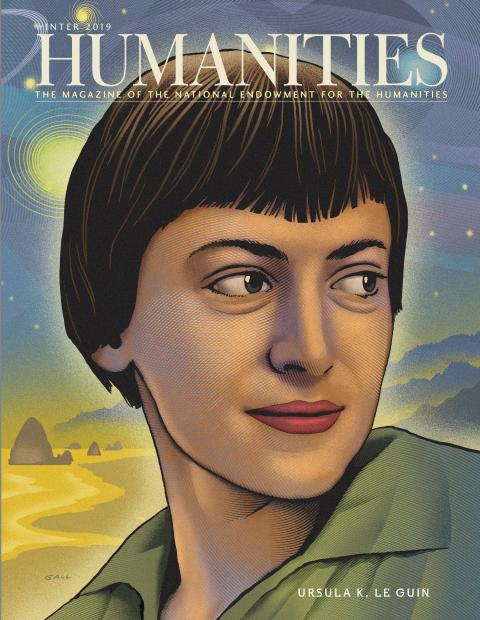At a summer camp in Chester, a group of teenagers spent a week learning about the history and culture of their hometown, a place known more for its poverty and urban decay during the past half century than for its artists or activists.
In the process, Camp Legacy helped students envision how their own ambitions intertwine with their city’s progress.
“My purpose is to get the kids to connect to the place where they are from,” said Twyla Simpkins, a teacher and local cultural leader who ran the camp. Simpkins, or Ms. T as everyone calls her, believes that through artistic expression, guided by historical education, Chester teens can contribute to the ongoing revitalization of the city.
Chester is the oldest city in Pennsylvania, located on the Delaware River about thirty miles south of Philadelphia. It was a tiny settlement first established by Swedish immigrants, who called it Upland before it was renamed by William Penn in 1682. The city flourished when the factories of the Sun Shipbuilding & Drydock Co., Scott Paper, Ford Motor Company, and Baldwin Locomotive Works lined the waterfront a century ago. But the heavy industries that brought thousands of workers to Chester in the early twentieth century are now long gone. The population of around 66,000 in 1950 was halved to 34,000 by 2010. The city is now beset by a poverty rate of 36.9 percent and one of the highest crime rates in the United States.
The current facts can overshadow Chester’s rich history. Chester Made, an initiative of the Pennsylvania Council for the Humanities (PCH), which sponsored Camp Legacy, is a direct response to the overwhelming negative perception of the city. Laurie Zierer, the executive director at PCH who helped launch Chester Made, says, “We see positive change as residents build relationships, honor their homegrown talents and assets, reclaim and repurpose the city for themselves, and change the narrative about Chester.” Change has taken concrete form on the city’s main street, Avenue of the States, as art galleries, a theater, and shops have opened within the past few years. In 2013, the first new grocery store in the city in 12 years opened.
Ms. T acknowledged that before the camp, many of the students had a negative view of Chester, based on what they hear and read in the news. The campers spent two days exploring the city to learn about its history and help widen their perspective. They visited historical landmarks that played an integral role during the civil rights movement in Chester, as well as places that pay homage to its artistic past. These sites included Calvary Baptist Church, where Martin Luther King Jr. preached while he attended Crozer Theological Seminary in Chester; the Ruth L. Bennett House for Colored Women and Girls, where Bennett sheltered African-American women coming from the South during the Great Migration; and the Andrew Turner Art Museum, which displays the paintings of the late Chester artist Andrew Turner, who depicted the African-American experience.
On the final day of camp, parents and residents came to the town’s MJ Freed Theater to see an exhibit curated by the teenagers about their own lives.
One camper displayed his first artwork, which was a culmination of a childhood spent watching his grandfather, a Chester artist himself, work in his studio. Another camper displayed her drawings along with concert videos that she had filmed and edited. In their final projects, the campers used the city’s history as a source of inspiration to tell their own stories.
Ms. T insisted the campers think about their futures only after they had gained some understanding of their families’ roots in the city. So, at camp, every student researched their own lineage and included a family tree showing their ties to Chester. Ms. T shared her own story, being from Chester and having a blue-collar father who became a magistrate. She noted how the camp was a way to impart her love for Chester to the city’s next generation.
When it came time for the audience to ask the campers questions about their exhibits, one father asked his son: “If you don’t make it to the NBA, what do you want to become?” The son reflected for a moment and responded: “A video game designer”—an answer in keeping with the creativity that Chester Made wants to inspire.
To close, Ms. T gave all of her campers white, archival-use gloves to symbolize what they accomplished as curators, and, more importantly, as a reminder to handle their own history and the history of their community carefully, with affection and pride.




